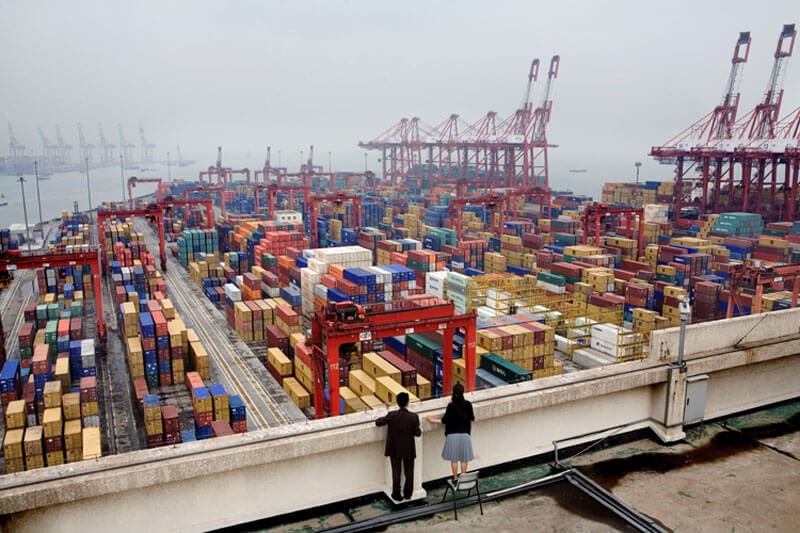
Fabian Bohnenberger and Christian Joerges on the populist backlash to globalisation.
Donald Trump’s astonishing election victory Tuesday night shows the appeal of populists who give voice to the anger of the real and self-perceived losers of globalisation. Rejecting the standard view that countries benefit from free trade, he argued that elites either blundered or conspired to send jobs out of the United States, while leaving “millions of our workers with nothing but poverty and heartache.”[1] Electoral convenience or not, no candidate for either main US party since the Great Depression has campaigned as fervently to roll back free trade. The election of Donald Trump amounts to a revolt against economic globalisation in a nation that has long been its leading advocate. This adds to deep uncertainty about the future of global trade, which had already suffered a blow with Brexit.
Growing anti-trade sentiments in the US and Europe increasingly reflect public concerns that modern trade policy has undermined democracy. Agreements like the EU-US Transatlantic Trade and Investment Partnership (TTIP) and the Trans-Pacific Partnership (TPP), the Obama administration’s flagship trade deal, acted as a catalyst for a debate on broader societal concerns surrounding the role of the state in creating and overseeing globalising markets, redistributing the gains from international trade and holding the precarious balance between different interest groups. In Europe, these conflicts recently culminated in strong resistance from Belgium’s Wallonian region to the EU-Canada trade agreement – a political disaster set to haunt future negotiations with Europe.
The failure of Western governments in managing globalisation’s domestic disruptions has led to frustration and uncertainty among the losers of an open economy and, in turn, created spaces for populist demands. Trump’s trade policy largely remains a mystery, save for his threats to tear up existing legal arrangements by the score, but his rumblings about the real and imagined ills of international trade will now have a lasting impact. Obsessed with the nation’s trade deficit, he announced to abandon the TPP and to demand the renegotiation of existing trade pacts, including the North American Free Trade Agreement (NAFTA), which he described as “the worst trade deal in history”. He also vowed to impose tariffs on imports from countries that enjoy “unfair advantages” and bring trade cases against China, in particular.[2]
Are we thus witnessing a drastic revision of the US commitment to free trade and its leading role in the move towards mega-regional trade agreements? This depends on whether cooler heads will prevail in the new administration. The candidate himself described his priorities in only the most hyperbolic terms; the crucial question is who will agree to come on board to sort out a clear policy. Trump faces a public that is increasingly wary about US participation in the global economy[3], which makes it more difficult to backtrack on his remarks. Given his unrealistic stances on other issues, it seems likely that Trump ditches agreements with high symbolic value such as TPP.
What will succeed the contested TPP and lingering TTIP and what will be the effect on global trade governance? Trump expressed a preference for bilateral “deals” instead of holding complex negotiations with country groups, which would constitute a break with the current trend towards both more elaborate agreements and more signatories. Overall, the uncertainty will incentivize US partners to look for alternative markets and could lead to new bilateral and regional agreements that exclude the US. Despite the EU’s campaign to keep TTIP alive[4], it will be low on the new administration’s agenda. While US citizens see the agreement as less problematic than TPP, slow progress in the negotiations and European grievances seem to have dispelled expectations.
Trump’s triumph should teach us about the importance to reconcile free trade with domestic policies that protect citizens from its disruptions and ensure that costs and benefits are fairly shared. It is certainly tempting to make trade the scapegoat for all our economic ills, but this narrative puts the blame for stagnant wages and rising inequality on only one piece of a larger picture. Harvard economist Dani Rodrik got it right: “Instead of decrying people’s stupidity and ignorance in rejecting trade deals, we should try to understand why such deals lost legitimacy in the first place. I’d put a large part of the blame on mainstream elites and trade technocrats who pooh-poohed ordinary people’s concerns with earlier trade agreements.”[5]
If large sections of society start to associate trade with inequality, insecurity and diminished aspirations, the social consensus in favour of open markets will crumble rapidly. To preserve the legitimacy of international trade, its link to democratic policy-making and commitment to the protection of domestic social norms and social cohesion must be strengthened. Reconciliation has to entail reforming the way in which societal preferences are articulated and how the goals of trade policy are defined. Most importantly, free trade has to be complemented by fair domestic distributional policies that limit its disruptive potential and thus mitigate the populist backlash to globalisation.
This article is based on a recent research article which was co-authored by us. A draft version is available here.
[5] rodrik.typepad.com/dani_rodriks_weblog/2016/10/the-walloon-mouse.html. Constitutional Courts articulate their concerns more cautiously than Professor Rodrik. There are nevertheless affinities discernible with the reasoning of the German Constitutional Court’s judgement of 13 October 2016 (see www.bundesverfassungsgericht.de/SharedDocs/Pressemitteilungen/EN/2016/bvg16-071.html).
More about the author
-
Christian Joerges, Professor Emeritus of Law and Society
